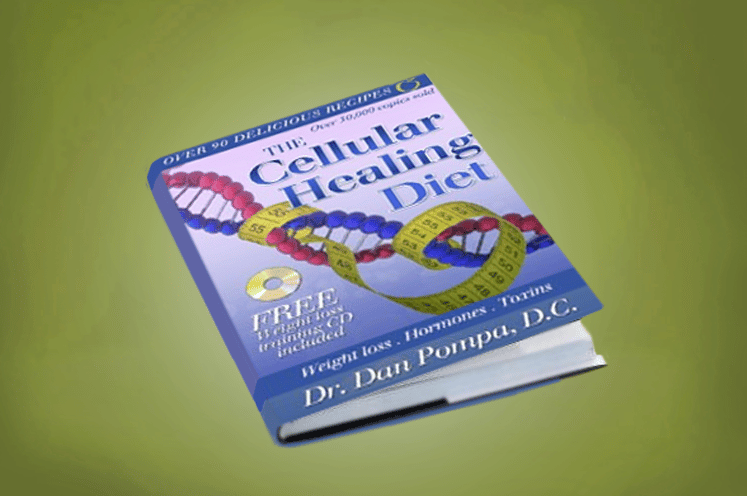There are a number of promising holistic treatment options for autoimmune diseases that are growing in popularity due to their all encompassing approach to improving health. These treatment options focus on the overall well-being of the individual, rather than just targeting specific symptoms. This is ideal for those living with autoimmune diseases, as these conditions often have multiple and interconnected underlying causes.
Targeting The Cause – Toxins
Toxins disrupt the normal functioning of our immune system and lead to autoimmune diseases. These toxic elements enter our body through contaminated food, water, or are present in our environment due to industrial pollution.1
Toxins are present in our diet in the form of processed foods, artificial sweeteners, and pesticides used on fruits and vegetables. These substances cause inflammation in the body and weaken the immune system, making us more susceptible to autoimmune diseases.2
In addition to external toxins, our body produces its own toxins as a byproduct of normal metabolism. These toxins accumulate in our organs and tissues if they are not properly eliminated, leading to inflammation and dysfunction in the immune system.3
Detoxification is an absolute must and is the first step of eliminating the cause of autoimmune diseases.
Heavy Metals
Research has demonstrated the link between heavy metal toxicity and autoimmune diseases. Heavy metals such as mercury, lead, cadmium, and arsenic accumulate in the body over time, causing oxidative stress and disrupting the immune system.4
Heavy metal toxicity is most notably linked to systemic lupus erythematosus (SLE), multiple sclerosis (MS), and rheumatoid arthritis (RA).5 6 7 These toxic metals increase the production of free radicals in the body, leading to oxidative stress and damage to cells and tissues. They also interfere with the body’s natural detoxification processes, making it more difficult for the immune system to function properly.8
Heavy metal chelation therapy is a medical treatment process that involves the removal of heavy metals from the body. This treatment uses chelating agents, which are substances that bind to the heavy metals in the body and help facilitate their removal through urine or stool. The process of heavy metal chelation therapy involves numerous sessions over a period of years.9
Read more about heavy metal chelation therapy.
Mold Exposure
Mold exposure has been linked to a variety of health issues, including allergies, respiratory problems, and autoimmune disorders. When mold spores are inhaled or come into contact with the skin, they can trigger an immune response in some individuals. This immune response leads to inflammation and damage to healthy tissues, contributing to the development of autoimmune diseases.10
In addition, mold exposure has been linked to an increase in antibodies that are associated with autoimmune disorders. These antibodies target certain proteins and tissues in the body, leading to further damage and inflammation.11
When it comes to treating autoimmune diseases related to mold exposure, identifying and eliminating mold from an individual’s environment is the only lasting solution.
Read more about how mold affects health.

Improving The Microbiome
The microbiome refers to the collection of microorganisms that live within our bodies, primarily in our gut. These microorganisms play a crucial role in maintaining our overall health, including supporting our immune system and aiding in digestion.12
In individuals with autoimmune diseases, there is often an imbalance or dysbiosis in the microbiome. This means that there is an overgrowth of harmful bacteria and a decrease in beneficial bacteria, leading to chronic inflammation and other health issues.13
Holistic treatments for autoimmune diseases focus on rebalancing the microbiome through various natural methods including following an anti-inflammatory diet that includes fermented foods. Probiotic-rich foods such as yogurt, kimchi, and sauerkraut introduce beneficial bacteria into the gut, restoring optimal function.14
Read more about microbiome dysfunction.
Diet Of Anti-Inflammatory Foods
One important aspect of managing autoimmune diseases is through diet. Begin by avoiding processed foods, sugar, alcohol, and gluten and instead, consume whole foods that are rich in antioxidants and essential nutrients.
Consuming a diet rich in anti-inflammatory foods helps reduce inflammation in the body and alleviate symptoms associated with autoimmune diseases. These foods are beneficial for overall health and can help boost the immune system.
Fatty fish such as salmon, tuna, and sardines are high in omega-3 fatty acids, which have been shown to reduce inflammation in the body. Fish is an excellent source of lean protein and essential nutrients such as vitamin D and minerals like selenium, zinc, iron, and iodine. These nutrients are important for maintaining a healthy metabolism, strong bones, and a properly functioning immune system.15 16 17
Grass-fed meat contains more beneficial nutrients compared to conventionally-raised meat. It is higher in omega-3 fatty acids, as well as CLA, which reduce inflammation in the body.18 19
Vegetables like spinach, kale, and broccoli are rich in antioxidants and phytochemicals that help fight inflammation. Vegetables are packed with essential vitamins, minerals, fiber, and phytochemicals that are crucial for our overall well-being.20
Blueberries, strawberries, and raspberries contain high levels of anthocyanins, which have anti-inflammatory properties.21 Almonds, walnuts, and chia seeds are all high in omega-3s and can help reduce inflammation.22 Rich in oleic acid, olive oil is a great addition to any diet, as it is known for its anti-inflammatory effects.23
Read more about an anti-inflammatory diet.

Vitamin D
One holistic treatment option for autoimmune diseases involves ensuring adequate vitamin D levels. Vitamin D plays a crucial role in regulating the immune system and reducing inflammation. Studies have shown that individuals with autoimmune diseases often have low levels of vitamin D.24
Adequate vitamin D levels modulate the immune response and may even prevent the development of certain autoimmune disorders. In addition, vitamin D has been found to improve symptoms in patients with existing autoimmune diseases.25
Vitamin D has anti-inflammatory properties, which can help alleviate symptoms such as joint pain and swelling in conditions like rheumatoid arthritis. Vitamin D also helps regulate the immune system, which is important in managing autoimmune diseases where the immune response is overactive.26
Some autoimmune diseases, such as lupus and multiple sclerosis, can lead to bone loss. Vitamin D helps with the absorption of calcium, which is essential for maintaining strong bones.27
Many individuals with autoimmune diseases also experience symptoms of depression and anxiety. Vitamin D has been linked to improving mood and reducing symptoms of depression.28
Read more about the health benefits of Vitamin D.
Curcumin
Curcumin is a natural compound found in turmeric, a spice commonly used in Indian and Asian cuisines. It has been used for centuries in traditional medicine to treat various ailments, and modern research has shown that it has powerful anti-inflammatory and antioxidant properties.
One of the main benefits of curcumin is its ability to reduce inflammation. This helps alleviate symptoms such as joint pain, swelling, and stiffness.29
Moreover, curcumin has also been found to have antioxidant properties. Antioxidants play a crucial role in protecting the body against free radicals, which are unstable molecules that cause damage to cells and contribute to chronic diseases like autoimmune disorders.30
In addition to its anti-inflammatory and antioxidant effects, curcumin has been shown to improve immune function. Studies have found that it can enhance the activity of certain immune cells, which help regulate the body’s immune response in cases of autoimmune diseases.31
Furthermore, curcumin is extremely safe and is generally well-tolerated by most people. It can be taken in supplement form or incorporated into the diet through the use of turmeric in cooking.32
Acupuncture
Acupuncture is an ancient Chinese medical practice that has been used for centuries to treat a variety of ailments. This traditional treatment involves the insertion of thin needles into specific points on the body, known as acupuncture points, to stimulate and balance the flow of energy within the body.
In recent years, acupuncture has gained popularity in Western medicine as a holistic treatment option for autoimmune diseases. Studies have shown that acupuncture is effective in reducing inflammation and pain associated with autoimmune diseases. It has also been found to have a positive impact on immune system function, helping to regulate the body’s response to inflammation and preventing further damage.33 34
Cold Therapy
Cold therapy, also known as cryotherapy, involves exposing the body to extremely cold temperatures for a short period of time. This can be done through various methods such as ice packs, cold baths, or whole-body cryotherapy chambers.
Cold therapy works by constricting blood vessels which reduces blood flow to the affected area, ultimately decreasing inflammation. Cold therapy also helps numb the nerves, which reduces the transmission of pain signals to the brain. This can provide temporary relief from chronic pain associated with autoimmune diseases.35
Living with a chronic condition like an autoimmune disease can take a toll on one’s mental health. Cold therapy has been shown to release endorphins, which are feel-good hormones that can improve mood and reduce feelings of anxiety and depression.36

Addressing The True Causes Of Autoimmune Conditions
Typical treatment for autoimmune diseases involves managing symptoms and suppressing the immune system with medication. However, there are holistic treatment options for autoimmune conditions that target the true cause of the illness. First, start by removing toxins from your environment and body. Then, improve the microbiome with a diet of anti-inflammatory foods, fermented foods, and curcuma. Next, ensure adequate Vitamin D levels. Finally, take advantage of acupuncture and cold therapy.
Read more about the health benefits of cold therapy.
References
1 Thompson LA, Darwish WS. Environmental Chemical Contaminants in Food: Review of a Global Problem. J Toxicol. 2019 Jan 1;2019:2345283. doi: 10.1155/2019/2345283. PMID: 30693025; PMCID: PMC6332928.
2 Furman D, Campisi J, Verdin E, Carrera-Bastos P, Targ S, Franceschi C, Ferrucci L, Gilroy DW, Fasano A, Miller GW, Miller AH, Mantovani A, Weyand CM, Barzilai N, Goronzy JJ, Rando TA, Effros RB, Lucia A, Kleinstreuer N, Slavich GM. Chronic inflammation in the etiology of disease across the life span. Nat Med. 2019 Dec;25(12):1822-1832. doi: 10.1038/s41591-019-0675-0. Epub 2019 Dec 5. PMID: 31806905; PMCID: PMC7147972.
3 Kharrazian D. Exposure to Environmental Toxins and Autoimmune Conditions. Integr Med (Encinitas). 2021 Apr;20(2):20-24. PMID: 34377090; PMCID: PMC8325494.
4 Rajkumar V, Lee VR, Gupta V. Heavy Metal Toxicity. [Updated 2023 Mar 23]. In: StatPearls [Internet]. Treasure Island (FL): StatPearls Publishing; 2024 Jan-. Available from: https://www.ncbi.nlm.nih.gov/books/NBK560920/
5 Barbhaiya, M., & Costenbader, K. H. (2016). Environmental exposures and the development of systemic lupus erythematosus. Current opinion in rheumatology, 28(5), 497–505. https://doi.org/10.1097/BOR.0000000000000318
6 Sarihi, S., Niknam, M., Mahjour, S., Hosseini-Bensenjan, M., Moazzen, F., Soltanabadi, S., & Akbari, H. (2021). Toxic heavy metal concentrations in multiple sclerosis patients: A systematic review and meta-analysis. EXCLI journal, 20, 1571–1584. https://doi.org/10.17179/excli2021-3484
7 Chen, L., Sun, Q., Peng, S., Tan, T., Mei, G., Chen, H., Zhao, Y., Yao, P., & Tang, Y. (2022). Associations of blood and urinary heavy metals with rheumatoid arthritis risk among adults in NHANES, 1999-2018. Chemosphere, 289, 133147. https://doi.org/10.1016/j.chemosphere.2021.133147
8 Lehmann I, Sack U, Lehmann J. Metal ions affecting the immune system. Met Ions Life Sci. 2011;8:157-85. PMID: 21473381.
9 Sears ME. Chelation: harnessing and enhancing heavy metal detoxification–a review. ScientificWorldJournal. 2013 Apr 18;2013:219840. doi: 10.1155/2013/219840. PMID: 23690738; PMCID: PMC3654245.
10 Harding CF, Pytte CL, Page KG, Ryberg KJ, Normand E, Remigio GJ, DeStefano RA, Morris DB, Voronina J, Lopez A, Stalbow LA, Williams EP, Abreu N. Mold inhalation causes innate immune activation, neural, cognitive and emotional dysfunction. Brain Behav Immun. 2020 Jul;87:218-228. doi: 10.1016/j.bbi.2019.11.006. Epub 2019 Nov 18. PMID: 31751617; PMCID: PMC7231651.
11 Lieberman A, Curtis L. Mold Exposure and Mitochondrial Antibodies. Altern Ther Health Med. 2020 Nov;26(6):44-47. PMID: 32088666.
12 Qian XB, Chen T, Xu YP, Chen L, Sun FX, Lu MP, Liu YX. A guide to human microbiome research: study design, sample collection, and bioinformatics analysis. Chin Med J (Engl). 2020 Aug 5;133(15):1844-1855. doi: 10.1097/CM9.0000000000000871. PMID: 32604176; PMCID: PMC7469990.
13 De Luca F, Shoenfeld Y. The microbiome in autoimmune diseases. Clin Exp Immunol. 2019 Jan;195(1):74-85. doi: 10.1111/cei.13158. PMID: 29920643; PMCID: PMC6300652.
14 Leeuwendaal NK, Stanton C, O’Toole PW, Beresford TP. Fermented Foods, Health and the Gut Microbiome. Nutrients. 2022 Apr 6;14(7):1527. doi: 10.3390/nu14071527. PMID: 35406140; PMCID: PMC9003261.
15 Elagizi A, Lavie CJ, O’Keefe E, Marshall K, O’Keefe JH, Milani RV. An Update on Omega-3 Polyunsaturated Fatty Acids and Cardiovascular Health. Nutrients. 2021 Jan 12;13(1):204. doi: 10.3390/nu13010204. PMID: 33445534; PMCID: PMC7827286.
16 Lu Z, Chen TC, Zhang A, Persons KS, Kohn N, Berkowitz R, Martinello S, Holick MF. An evaluation of the vitamin D3 content in fish: Is the vitamin D content adequate to satisfy the dietary requirement for vitamin D? J Steroid Biochem Mol Biol. 2007 Mar;103(3-5):642-4. doi: 10.1016/j.jsbmb.2006.12.010. Epub 2007 Jan 30. PMID: 17267210; PMCID: PMC2698592.
17 Lall SP, Kaushik SJ. Nutrition and Metabolism of Minerals in Fish. Animals (Basel). 2021 Sep 16;11(9):2711. doi: 10.3390/ani11092711. Erratum in: Animals (Basel). 2021 Dec 09;11(12): PMID: 34573676; PMCID: PMC8466162.
18 Daley CA, Abbott A, Doyle PS, Nader GA, Larson S. A review of fatty acid profiles and antioxidant content in grass-fed and grain-fed beef. Nutr J. 2010 Mar 10;9:10. doi: 10.1186/1475-2891-9-10. PMID: 20219103; PMCID: PMC2846864.
19 Daley CA, Abbott A, Doyle PS, Nader GA, Larson S. A review of fatty acid profiles and antioxidant content in grass-fed and grain-fed beef. Nutr J. 2010 Mar 10;9:10. doi: 10.1186/1475-2891-9-10. PMID: 20219103; PMCID: PMC2846864.
20 Probst YC, Guan VX, Kent K. Dietary phytochemical intake from foods and health outcomes: a systematic review protocol and preliminary scoping. BMJ Open. 2017 Feb 15;7(2):e013337. doi: 10.1136/bmjopen-2016-013337. PMID: 28202499; PMCID: PMC5318549.
21 Ma Z, Du B, Li J, Yang Y, Zhu F. An Insight into Anti-Inflammatory Activities and Inflammation Related Diseases of Anthocyanins: A Review of Both In Vivo and In Vitro Investigations. Int J Mol Sci. 2021 Oct 14;22(20):11076. doi: 10.3390/ijms222011076. PMID: 34681733; PMCID: PMC8540239.
22 de Souza RGM, Schincaglia RM, Pimentel GD, Mota JF. Nuts and Human Health Outcomes: A Systematic Review. Nutrients. 2017 Dec 2;9(12):1311. doi: 10.3390/nu9121311. PMID: 29207471; PMCID: PMC5748761.
23 Jimenez-Lopez C, Carpena M, Lourenço-Lopes C, Gallardo-Gomez M, Lorenzo JM, Barba FJ, Prieto MA, Simal-Gandara J. Bioactive Compounds and Quality of Extra Virgin Olive Oil. Foods. 2020 Jul 28;9(8):1014. doi: 10.3390/foods9081014. PMID: 32731481; PMCID: PMC7466243.
24 Murdaca G, Tonacci A, Negrini S, Greco M, Borro M, Puppo F, Gangemi S. Emerging role of vitamin D in autoimmune diseases: An update on evidence and therapeutic implications. Autoimmun Rev. 2019 Sep;18(9):102350. doi: 10.1016/j.autrev.2019.102350. Epub 2019 Jul 16. PMID: 31323357.
25 Bridger, H. (2022, January 27). Vitamin D reduced rate of autoimmune diseases by 22%. Harvard Gazette. https://news.harvard.edu/gazette/story/2022/01/vitamin-d-reduced-rate-of-autoimmune-diseases-by-22/
26 Merlino LA, Curtis J, Mikuls TR, Cerhan JR, Criswell LA, Saag KG; Iowa Women’s Health Study. Vitamin D intake is inversely associated with rheumatoid arthritis: results from the Iowa Women’s Health Study. Arthritis Rheum. 2004 Jan;50(1):72-7. doi: 10.1002/art.11434. PMID: 14730601.
27 Christakos S, Dhawan P, Porta A, Mady LJ, Seth T. Vitamin D and intestinal calcium absorption. Mol Cell Endocrinol. 2011 Dec 5;347(1-2):25-9. doi: 10.1016/j.mce.2011.05.038. Epub 2011 Jun 1. PMID: 21664413; PMCID: PMC3405161.
28 Huiberts LM, Smolders KCHJ. Effects of vitamin D on mood and sleep in the healthy population: Interpretations from the serotonergic pathway. Sleep Med Rev. 2021 Feb;55:101379. doi: 10.1016/j.smrv.2020.101379. Epub 2020 Sep 9. PMID: 32987320.
29 Peng Y, Ao M, Dong B, Jiang Y, Yu L, Chen Z, Hu C, Xu R. Anti-Inflammatory Effects of Curcumin in the Inflammatory Diseases: Status, Limitations and Countermeasures. Drug Des Devel Ther. 2021 Nov 2;15:4503-4525. doi: 10.2147/DDDT.S327378. PMID: 34754179; PMCID: PMC8572027.
30 Menon VP, Sudheer AR. Antioxidant and anti-inflammatory properties of curcumin. Adv Exp Med Biol. 2007;595:105-25. doi: 10.1007/978-0-387-46401-5_3. PMID: 17569207.
31 Allegra A, Mirabile G, Ettari R, Pioggia G, Gangemi S. The Impact of Curcumin on Immune Response: An Immunomodulatory Strategy to Treat Sepsis. Int J Mol Sci. 2022 Nov 25;23(23):14710. doi: 10.3390/ijms232314710. PMID: 36499036; PMCID: PMC9738113.
32 Hewlings SJ, Kalman DS. Curcumin: A Review of Its Effects on Human Health. Foods. 2017 Oct 22;6(10):92. doi: 10.3390/foods6100092. PMID: 29065496; PMCID: PMC5664031.
33 Xu Y, Hong S, Zhao X, Wang S, Xu Z, Ding S, Zhang K, Zhang Y, Xu L, Yu N, Zhao T, Yan Y, Yang F, Liu Y, Yu K, Liu B, Guo Y, Pang G. Acupuncture Alleviates Rheumatoid Arthritis by Immune-Network Modulation. Am J Chin Med. 2018;46(5):997-1019. doi: 10.1142/S0192415X18500520. Epub 2018 Jul 12. PMID: 30001644.
34 Yang F, Gong Y, Yu N, Yao L, Zhao X, Hong S, Wang S, Chen B, Xu Y, Pang G, Wang H, Guo Y, Li Y, Guo Y, Xu Z. ST36 Acupuncture Alleviates the Inflammation of Adjuvant-Induced Arthritic Rats by Targeting Monocyte/Macrophage Modulation. Evid Based Complement Alternat Med. 2021 Feb 27;2021:9430501. doi: 10.1155/2021/9430501. PMID: 33727948; PMCID: PMC7936911.
35 Esperland D, de Weerd L, Mercer JB. Health effects of voluntary exposure to cold water – a continuing subject of debate. Int J Circumpolar Health. 2022 Dec;81(1):2111789. doi: 10.1080/22423982.2022.2111789. PMID: 36137565; PMCID: PMC9518606.
36 Shevchuk NA. Adapted cold shower as a potential treatment for depression. Med Hypotheses. 2008;70(5):995-1001. doi: 10.1016/j.mehy.2007.04.052. Epub 2007 Nov 13. PMID: 17993252.




